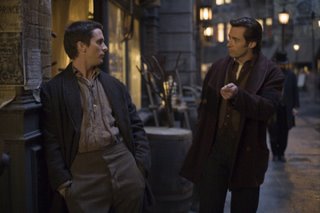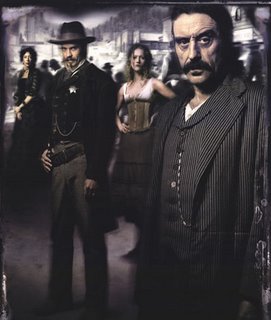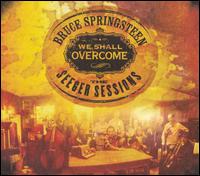
My Red Hot Chili Peppers fandom essentially ended on March 31, 2000, the first and last time I saw them in concert.
That year the Peppers were touring off their spectacular comeback album “Californication,” with the Foo Fighters as special guests. So I hoofed it to Columbus with a bunch of friends to see them, only to find out when we arrived that Dave Grohl was “sick” and the Foos wouldn’t play. Disappointing as that was, I consoled myself with the hope that the Chilis would probably play longer as a result.
No such luck.
Instead, openers Muse played an extended set (not bad, mind you), and the Peppers made us wait for more than an hour before playing through their standard 80-minute set.
Needless to say, I was pissed. They could—and should—have done the right thing and at least tried to make something positive out of the evening. Think of how impressed I would have been had they acknowledged our disappointment by promising to try and take the edge off with a special performance. Nah, instead they took our money and ran.
I can probably count on one hand how many times I’ve listened to them since then—and I LOVED “Californication.”
As Bill Cosby would say, I told you that story so I can tell you this one …
• • •
Giddy shouts of joy reverberated through Pearl Jam’s little corner of the Internet this month when it was revealed the band would play a set for VH-1’s “Storytellers” on May 31. Fans were buzzing over the opportunity to ask Eddie & Co. about their songs and get to hear the stories and themes behind them straight from their mouths—some of the songs, presumably, explained for the first time.
Except me. Why? Because I already had tickets for the D.C. show the night before, and I feared the worst: A set cut short by the necessity of traveling from Washington to New York City in time for an early call the next night. A conserving of energy, holding back on a few thousand people in order to look good for the millions certain to watch a televised performance. All adding up to, by Pearl Jam standards, a subpar outing.
What was I thinking? Pearl Jam never—I repeat, NEVER—mails it in, and I should have known better.
Tuesday night’s show was scheduled to start at 7:30 p.m., but Ed hit the stage at 7:25, guitar in hand, for a gorgeous pre-set cover of Cat Stevens’ “Don’t Be Shy” (is there anything this guy’s voice can’t sing?). Openers My Morning Jacket then jumped onstage right away and played a brief 25-minute set, clearing out well before 8:00 and leaving Pearl Jam plenty of time to do their thing. Which they did, gloriously, for nearly two and a half hours.
They could have said screw it, we have an important gig tomorrow night and that’s all there is to it. But, no, they did the right thing, the honorable thing, and made the most out of what could have been a bad situation, because every night is important for this band. This is what makes PJ great. This is what separates them from the pack. It sounds trite, but I truly believe this band cares deeply about its fans and goes out of its way to protect that relationship. Cut a show short? Uh-uh. Not on your life.
And, man, what a show, clocking in at 29 songs and 2:25 (yes, it’s insane that those figures are considered shorter than usual), Pearl Jam simply trimmed off the fat. This, my 10th show, was perhaps the most well crafted, focused setlist I’ve heard in person.
Look no further than “Release,” one of the band’s best songs and without question the best concert-opener in Pearl Jam’s entire catalog. Man, I love this song—you’ll never convince me that a show opened with “Release” isn’t great. From the very first note (instantly recognizable for many of us), it sets a definite tone—we’re not screwing around here.
That vibe continued with a stellar run of all-out rockers to kick the show into high gear. Hit single “World Wide Suicide” actually translates extremely well live and has truly won me over, with Ed somehow managing to spit out all those lines without missing a beat or veering off track. “Severed Hand” melts my face it’s so raw and powerful, and makes good use of the band’s new light show. There is a rainbow arc of lights across the back of the stage, then another bank high above their heads that at times can shimmer and sparkle similar to U2’s “light curtain” from the Vertigo tour. And all of this is complemented by “laser lights,” essentially a series of spotlights located at the rear of the stage facing out into the crowd that can be wide or narrowed to a thin beam. Mostly used on the new material, it’s not distracting, but not entirely necessary, either. I liked the rainbow arc, but the rest didn’t do much for me.
By this point in the show—yes, just three songs in—the only thing you really need to see is Mike McCready, already going crazy and running in circles on his corner of the stage (always a good sign). And why not? The opening moments of this concert were a showcase for his guitar heroics, with big solos in “Severed Hand” and the old warhorse “Corduroy,” which still bowls me over.
After a rousing “Animal,” Ed spoke for the first time with these magic little words: “We’re just gettin’ started,” leading right into that killer opening riff to none other than “Do the Evolution”—it just reaches out and grabs you by the throat. While this is probably my favorite Pearl Jam song, I’m not so biased that I can’t admit it doesn’t always come off well live. Even though they’ve played it literally hundreds of times, “DTE” is so tight, it requires maximum effort to pull off live. When trotted out late in a show (the second encore, for instance), they typically don’t have enough energy left to play it to full potential. But here, in the No. 6 slot, it still roars, leading wonderfully into the always-magnificent “Given to Fly,” another major piece of the catalog that deserves the early-set treatment.
So Eddie lasted seven songs before delving into politics, albeit lightly (for now). After mentioning what a good time he had in the area on Memorial Day and how happy he is that summer is here, he dropped in a line about “hopefully we can end the war before summer’s end,” leading into the first shocker of the night: “Lowlight,” a beautiful track from 1998’s “Yield” that I had yet to hear in person.
“Lowlight” served as a dividing line between the opening thrills and the meat of the first set, which turned out to be one heck of a stretch. It didn’t hurt that this section began with “Unemployable,” one my favorite cuts off the new album. But follow that with “Grievance” → “Even Flow” → “I Got Shit,” and I need a moment to catch my breath. So, right on cue, here’s “Present Tense,” a highlight of any show and seemingly growing more powerful with age. It’s a little faster, a little harder these days, as Matt sneaks in earlier than before on drums. With Ed allowing the crowd to take over in the chorus—goosebumps, galore.
In another new twist (and I think this was a first), Ed also reworked the beginning of “Betterman” for Booooooom to start the song off on keys; while it makes for a nice change, I still prefer letting the crowd start the whole thing off a la Springsteen’s “Hungry Heart,” but I’m never going to complain about innovation—and we still got to sing the chorus.
Up next was “Inside Job,” a nice transition into the crescendo that closed the main set. I won’t go into my love for this song again (just find my review of the new record), but it’s so good—and has the potential to be even better once they figure out how to really pull it off live (it seems to be the most difficult piece of all the new songs). Right now, the opening section is played on electric guitar instead of acoustic and it’s a little more uptempo, which somewhat deadens the impact of that BIG shift to all-out rocker in the second half. Still, overall, I wouldn’t have traded this song out for anything.
“Wasted Reprise”/”Life Wasted” picked up on the momentum and took it up several notches, because, let me assure you, “Life Wasted” is already at the top of my list for favorite live songs. It fits the band’s strengths perfectly—taut, intense, hard-rocking, and a great segue into a knockout punch of “Why Go” (complete with the traditional drum solo intro) and “Rearviewmirror” to close this section of the show on a huge high. (Ed did a little vocal vamping during the “RVM” bridge, by the way, which I also think is new—and very cool (and, while I’m at it, let me mention the bridge was much harder and faster this time around than any version I’ve ever heard, which, again, is a big improvement).) I can’t stress enough how well this opening set flowed—it was basically pitch-perfect, with none of those awkward “Lukin” into “Wishlist” transitions Eddie has been known to throw in. Each song seemed to complement the previous one and lead gracefully into the next, building and lessening intensity as needed. It was Pearl Jam at their absolute best. And we weren’t close to finished, even on a “short” night.
Over the past couple years, Pearl Jam have fallen into a delicious habit of treating their first encore like an acoustic/soft mini-set. The crew drags some stools onstage and the band takes a load off for a few quiet songs, and it’s just great—makes a show feel even longer than it actually is. Tuesday night’s encore opened with “Man of the Hour,” a wonderful little song Ed wrote for the “Big Fish” soundtrack. That led into Bob Dylan’s “Masters of War,” which maintains Pearl Jam’s legacy of taking another artist’s song and making it completely their own (a la “Rockin’ in the Free World”). “Masters” has evolved quite a bit over the years, now played mostly electric and with more raw power than previous incarnations. It’s lost none of the bile, though, and was a much better political statement in the nation’s capital than any mumbling rant from Ed.
“Small Town” was the only song in the set I would have replaced, simply because it’s rather boring for me at this point. I’d much rather hear “Nothingman,” “Hard to Imagine,” or “Off He Goes” in this slot, but I know it’s a big crowd-pleaser, so I understand why it’s trotted out so much. And, hey, “Come Back” was next, so I can’t complain. This song, yet another highlight on “Avocado,” is just brilliant live. It gave me chills and stuck in my brain more than any other song after the show was over.
Back in October, after attending a classic PJ night in Philly, I wrote that the band plays “Alive” with hope now, rather than bitterness and anger as it was originally intended, and that has made it a highlight of any show. Well, I’m proud to say I was half right. During Wednesday night’s “Storytellers” taping, Ed confirmed this song has changed over the years, but not exactly the way I thought. He said the fans—not the band—made the difference, lifting his personal curse embodied in the writing of this song; our reaction to it changed the way they play it and contributed to Ed’s personal healing process. That’s a stunning revelation from a very guarded person, but I guess not surprising if you stand in a crowd during any rendition of “Alive.” Tuesday night, as we pumped our fists and chanted “Hey!” over and over as one, Ed picked up on our cue and started singing along to us. It’s one of my favorite parts of any show, looking around at the crowd during this song. Although not in my personal top 20, it is nonetheless essential to understanding Pearl Jam’s core—catharsis and release through a shared musical experience. The lyrics may be dour, but the music, the ability to share that pain, fills everyone with hope and turns tragedy and struggle into transcendence.
But enough of that mushy stuff. “Comatose” opened the second encore and absolutely blew the roof off the building. This new album is something else, ladies and gentlemen, and these songs (hopefully) aren’t going anywhere for a while. And then there’s “Leash,” which disappeared for more than a decade before a lame fan “campaign” coerced the band into pulling it out of the attic where it belongs and into the set. It debuted in Boston last week and has been played at every show since—a little “you wanted it, you’re gonna get it,” courtesy of Pearl Jam. The song does nothing for me, but it’s not bad live (certainly better than “Glorified G,” a clunker inexplicably making regular appearances in this slot these days), and it allowed me to check another track of my “to hear” list, so fine.
Ed just couldn’t let the night slip away without taking a few more jabs at the Bush administration, but at least he did so with humor. Dick Cheney gave him a call the other day, he quipped, and made a request for Tuesday night: Neil Young’s “Fuckin’ Up,” Cheney’s “favorite song,” with the “Why do I keep FUCKIN’ UP” refrain. “He listens to it every morning when he wakes up,” Ed said. Politics aside, this is one of Pearl Jam’s best covers and a welcome addition to any show I ever attend.
So with the 11:00 hour approaching, it was time for PJ to say goodbye the way they love best, one last scorching Mike solo to close “Yellow Ledbetter.” Mike’s famous for working well-known riffs into his last moment in the spotlight, but this has got to be my favorite. As the song started, Ed said, “We’ll see you again, because when the revolution comes, it’ll be in your back yard.” We may disagree on just about everything, but I think we’re both—and much of America—looking for something better in our nation’s supposed leaders. Democrats, Republicans—who can tell the difference anymore? So it was fitting Mike played “The Star Spangled Banner” almost in its entirety to close the night, a reminder that hopefully there’s more uniting us than dividing us.
A revolutionary thought, indeed.
Pearl Jam
Verizon Center
Washington, D.C.
5.30.06
Pre-set:
Don’t By Shy (Ed solo)
Main set:
RELEASE
World Wide Suicide
Severed Hand
Corduroy
Animal
Do the Evolution
Given to Fly
Lowlight
Unemployable
Grievance
Even Flow
I Got Shit
Present Tense
Betterman
Inside Job
Wasted Reprise
Life Wasted
Why Go
Rearviewmirror
First Encore:
Man of the Hour
Masters of War
Small Town
Come Back
Alive
Second Encore:
Comatose
Leash
Fuckin’ Up
Yellow Ledbetter/Star Spangled Banner
Running time: 2 hours, 25 minutes
***And one final note about D.C. crowds***
Washington-area crowds have a bad rap nationwide for being lethargic, and I don’t understand why. I’m not about to compare us with NYC, Boston, Philly, or Chicago (in that order), but I was proud to stand amongst the upraised voices both here and at the Springsteen show two nights earlier. In fact, a reviewer from Backstreets.com favorably compared the Nissan show to a night in Europe. Now that’s some high—and long-deserved—praise. That singing through the encore break moment is one of my all-time best concert memories. Meanwhile, on Tuesday, there were multiple lines around the block waiting to get into a Pearl Jam show that had, hello, reserved seating. Don’t tell me we don’t get up for a show. Next time around, let’s play two!











